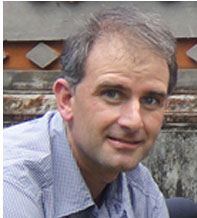Abstract:
Modern mining can be safe and profitable with a long-term environmental impact that is no different to other primary-production sector activities. However, these traits of "sustainable mining" are generally limited to mines in developed countries that have legislation in place to protect people, communities and the environment. Mining in developing countries can be very different. Operations may be well organised with high standards in the above criteria. But operations can be illegal, unsafe and detrimental to the environment, food safety and the fundamental fabric of community. In this scenario the concept of sustainable mining is very difficult to argue.
Unlocking developing countries' mineral potential can lead to economic development and poverty reduction. However, we cannot assume that these benefits will automatically accrue from mining; many examples have shown that mining is more likely to lead to poverty exacerbation than to poverty reduction. A widely touted model to explain this apparent conflict in ideas is the "Resource Curse".
Perhaps an explanation for this curse lies in analysis of community livelihoods in mining areas. The poorest people in the world generally live in rural areas of developing countries, and these same areas host the main non-renewable resources of the planet. Mining, therefore, represents a new livelihood for communities that would otherwise be employed in agriculture and farming. However, can mining be considered a community-wide viable "alternative livelihood"? I believe this question is at the centre of the issues we see in developing countries today.
Mining exploits a non-renewable resource and has a finite life time. Some skills gained by workers benefit the wider community, but many cannot be applied to traditional livelihoods at the end of mining. This threatens the fundamental structure of farming communities in mineral-rich areas. There are many examples of farmers abandoning their fields, and migrating in the search of metal.
Massey University is a leading international university for agricultural research, training and extension; Massey was ranked in the top 20 agriculture universities in the world in 2013 (QC ranking). Today Massey is using its presence and expertise in this space to benefit mining communities in developing countries. Initiatives in Indonesia, Ecuador and Columbia are establishing training centres for artisanal gold miners. Agriculture is a key area for training and extension; the aim is to highlight how income from agriculture can be superior to that from mining. If the infrastructure built for mining (power, water, transport) is used in tandem with education to develop the sector, then the prospect of long-term profitable agriculture is more secure. If this is the closure plan for mining in developing countries then perhaps more mining operations will meet the criteria of sustainability.
|






